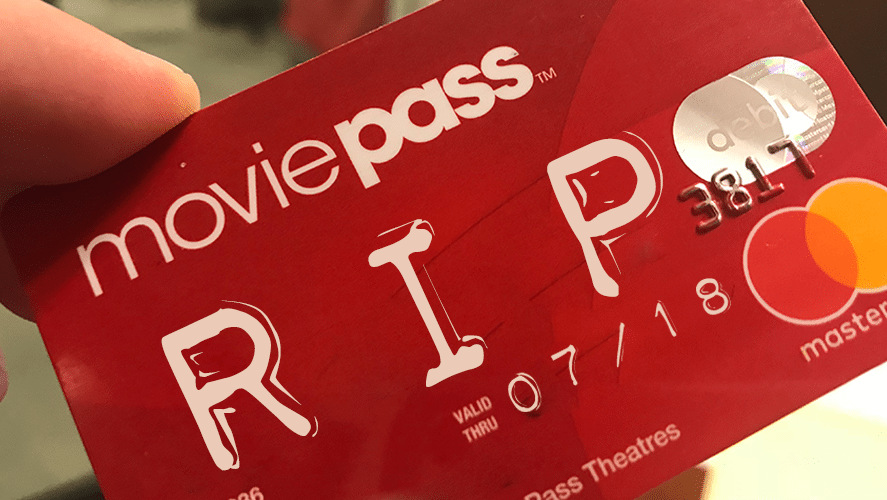
By Matthew Nguyen, Staff Writer
MoviePass, when first introduced to the public in 2011, seemed too good to be true. A movie ticket subscription that offered a movie ticket a day for a monthly transaction fee seemed like such a simple idea that everyone wondered why it hadn’t been done before. The business began slowly as, at first, the prices were way too high for the pass to be worth it. When the prices were suddenly lowered 6 years later, MoviePass experienced a great increase in users and many believed the company was here to stay. However, later that year, MoviePass began dealing with many issues and by late 2018, the pass became almost unusable.
It was March of 2018 when I had decided to make the fateful decision to purchase my very own MoviePass. The decision was made during their end/beginning of the year sale where MoviePass offered their customers a movie ticket a day for only $10 a month, or a single annual fee of $100. With movie ticket prices ranging from $10-$18 a showing, the subscription would easily pay for itself if one were to go to at least one movie a month. I, like many others, believed that this was a deal far too good to pass up. After this special deal had gone into effect on August of 2017, MoviePass’ customer base rose from four hundred-thousand to one million in just four months. That number will double in only two more months and will eventually reach peaks of around three million.
However, this is where the decline of MoviePass began. With such a large spike in clientele in such a short amount of time, MoviePass’ questionable business model became exposed. The reason why MoviePass was able to provide all of its customers with a free movie ticket a day is because they purchase all the tickets in bulk from the theaters themselves and distribute them accordingly. With the prices becoming so low and the clientele becoming so high, the company began to see a net loss in their profits. According to The Guardian, in the May of 2018, MoviePass reportedly announced that they lost $40 million.
The business reached its highest level of embarrassment during the release of one of the biggest summer blockbusters of that year, Mission Impossible: Fallout. Eager viewers (me included) came to the theaters hoping for a wonderful, cheap movie experience highlighted by great action delivered by Tom Cruise and warm, buttery popcorn, made affordable by the money saved from not purchasing a ticket. However, when coming up to the teller, many MoviePass users were denied their free ticket for some unexpected reason. Customers were obviously angered, and the emotion was further heightened when it surface that the technical issues was the result of a missed payment to one of their providers. MoviePass had to pull a $5 million loan from one of their parent companies in order to resolve the issue and stay afloat, but the damage had already been done. It became painfully aware how much the company was struggling, and it was the last straw for many customers.
Even the most faithful of MoviePass users, such as myself, have began to give up on the once-promising idea. As an avid-lover of movies, I had loved the prospect of the subscription based purchase of tickets. It was not uncommon for me to go the the movies upwards of three or even four times a month so only paying $100 for a free ticket a day seemed like a dream come true. However, that dream has morphed into a nightmare, as I’m now stuck with a useless piece of plastic and a $100 investment that might have been better put to use if it had been lit on fire for warmth.
What had once been hailed as a revolutionary business proposition that was going to change the movie industry as we knew it has now completely fallen from grace, scrambling to piece together the rubble of a failed business model. Who knows, maybe the company could potentially make a comeback in the future years, but as of right now, the hollow husk of MoviePass should be put to rest.





